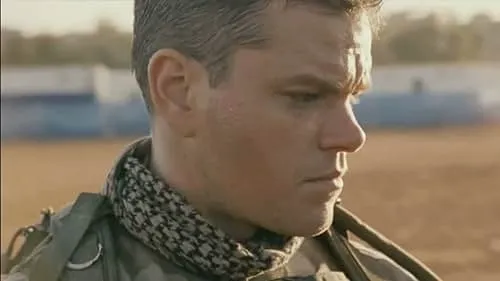Green Zone, released in 2010, delves into the complexities of the Iraq War, shedding light on the intelligence used to justify the invasion. The movie, inspired by real-life experiences, follows US Army Warrant Officer Roy Miller as he searches for nonexistent weapons of mass destruction in the Middle East. As Miller digs deeper, he uncovers deception and manipulation within the Department of Defense and CIA, leading to a crisis of faith in the government’s leadership.
The film’s portrayal of government deception and flawed intelligence sparked a heated debate, with some accusing it of being anti-American, while others praised its honest portrayal of the conflict. The movie’s political themes sparked controversy, with soldiers and political pundits criticizing its portrayal of the war.

A Still From Green Zone (Via IMDB)
Some saw it as a scathing critique of American foreign policy, while others felt it was overly critical of the government’s actions. Despite receiving decent reviews, Green Zone failed to attract audiences, ultimately emerging as one of Matt Damon’s biggest box office flops.
Despite its initial commercial failure, Green Zone has aged well, serving as a cultural commentary on the complexities of war and the disillusionment surrounding the Iraq War. Over time, the film has emerged as a thought-provoking exploration of the Iraq War, sparking fierce debates and receiving mixed reviews from critics and audiences alike. The movie’s themes of government deception and flawed intelligence have become increasingly relevant, making it a timely and important commentary on the relationship between government and citizens.
























